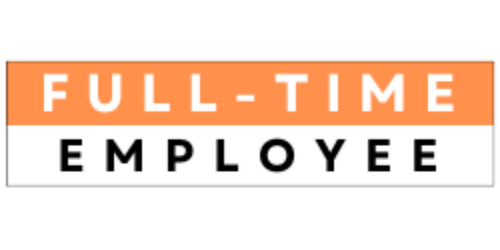Buying your first investment property is one of the biggest wealth-building moves you can make. But here’s the thing: most people reading this aren’t true first-time buyers, they already own a primary residence. What they really need is guidance on how to buy that first rental property in a way that maximizes cash flow and tax savings.
This guide covers both angles, whether you’re brand-new to buying or you’re turning your equity and savings into your first rental.
Step 1: Clarify Your Investment Goals
Before you crunch numbers, define your strategy:
- True First-Time Buyer: Maybe you’re house-hacking, buying a duplex, living in one side, renting the other. Great way to get in with FHA or conventional financing.
- Next-Property Buyer: If you already own your home, think of your rental as part of a bigger plan. Do you want short-term rental (STR) cash flow? Or steady long-term rental (LTR) appreciation and depreciation write-offs?
Tax Tip: STRs can offset your W-2 income if you materially participate, while LTRs unlock steady passive losses via depreciation.
Step 2: Analyze the Numbers (Cash Flow + Tax Flow)
Cash flow is king, but “tax flow” matters just as much.
- Run the Rent-to-Price Ratio: Shoot for at least 1% (e.g., $2,000/month rent on a $200,000 property).
- Factor in Depreciation: Residential rentals depreciate over 27.5 years — that’s a non-cash write-off that can make a breakeven property tax-advantaged.
- Account for STR vs. LTR Tax Treatment: STRs can be treated as active businesses, making losses more powerful; LTRs are passive unless you qualify as a Real Estate Professional.
Step 3: Secure Financing That Works for You
Financing is one of the most powerful levers for investors and it’s not one-size-fits-all.
If you’re just starting out:
- Conventional Loans: Lower interest rates, bigger down payments.
- FHA Loans: As low as 3.5% down if you live in one unit (house-hack strategy).
If you already own a home:
- HELOCs: Use equity from your primary residence for your down payment.
- DSCR Loans: Approval based on rental income, not your W-2.
- Seller Financing: Negotiate directly with the seller — often faster and more flexible.
- Partnerships / JVs: Split capital and credit with another investor.
Tax Tip: All financing options come with deductible mortgage interest. Some, like DSCR loans, make it easier to scale quickly while still capturing depreciation and expense write-offs.
Watch our LLC, S Corp, or C Corp, what’s right for you? Video
Step 4: Manage Expenses and Maximize Income
Profitability isn’t just about what you earn, it’s about what you keep.
- Minimize Vacancy: Turn units quickly, keep tenants happy.
- Set Competitive Rent: Use comps, overpricing creates costly vacancies.
- Negotiate with Vendors: Shop for property management, maintenance, and insurance.
- Maximize Deductions: Property taxes, insurance, repairs, mortgage interest, and depreciation are all deductible. STRs may also qualify for bonus deductions if actively managed.
Tax Tip: Depreciation is your silent partner, it creates “paper losses” that can wipe out taxable income while you still collect real cash flow.
Step 5: Leverage Property Management Tools and Systems
Whether you’re a hands-on landlord or prefer to outsource, systems protect your profits.
- Property Management Software: Tools like Rentec Direct or Buildium streamline rent collection, maintenance, and tenant communication.
- Property Managers: Worth the cost if you value your time or have multiple rentals.
Tax Tip: Property management fees are deductible, and outsourcing can protect your ability to prove material participation hours (critical for STR deductions).
Final Thoughts: Cash Flow + Tax Flow = True Wealth
Buying your first investment property isn’t just about rent checks. It’s about structuring the deal financing, entity setup, and tax strategy, so every dollar works harder for you.
Smart investors don’t just buy property, they build generational wealth.
Want Help Structuring Your First Investment Property?
At INVESTOR FRIENDLY CPA®, we help real estate investors nationwide structure their first rental (and every one after) for maximum tax efficiency and compliance. Whether you’re just starting out or looking to scale your portfolio, our team can guide you through the best tax strategies, property management tips, and financial planning techniques to ensure your real estate investments thrive.
Services include:
- Creative financing and entity structuring guidance
- Tax planning for STRs vs. LTRs
- Depreciation and cost segregation strategies
- IRS-compliant setup and audit defense
Get Started Today:
Reach out to INVESTOR FRIENDLY CPA® for expert guidance and take the first step toward smarter, more profitable real estate investing.
Toll-Free: 1-800-522-6091
Website: www.investorfriendlycpa.com
Schedule Schedule a Strategy Call Today and start building a profitable, cash-flowing property portfolio today!
- Buying your first rental is different from buying your first home — financing and tax planning matter just as much as location.
- Creative financing options like DSCR loans, HELOCs, seller financing, and partnerships can open doors beyond traditional mortgages.
- Depreciation and deductible expenses (interest, taxes, repairs) can create paper losses that reduce your taxable income while you still collect cash flow.
- Choosing between short-term rentals (STRs) and long-term rentals (LTRs) impacts both cash flow and tax treatment.




.png)

.png)



.png)










